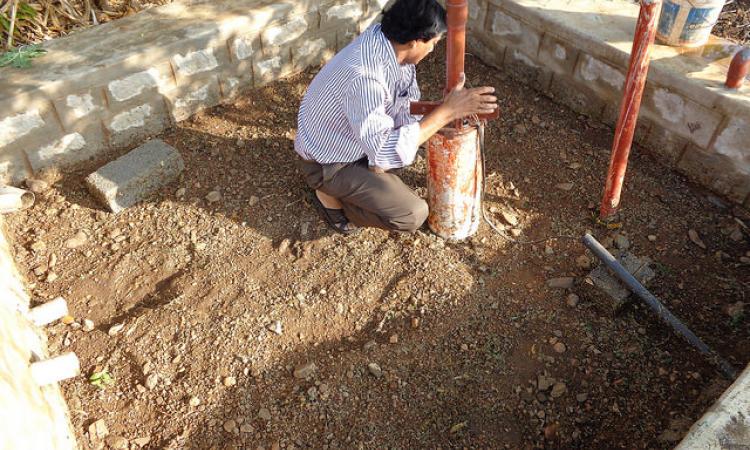
Ambitious solution to curb Karnataka's drought
In a bid to tackle the water woes of the state, the Minister for Rural Development and Panchayat Raj HK Patil has announced a plan to drill 1 km deep borewells in 10 water scarce areas. The government is going to involve the private company, WaterQuest Hydroresources Management Ltd for this project, that will cost Rs 12.5 crore per drilling. However, experts say the project will cause irreversible damage as going deep may not guarantee presence of pure water due to presence of geogenic contamination at depths of 300-400 m.
Jaipur Development Authority receives Rs 240 crore for Dravyavati river revival
The National Capital Region Planning Board (NCRPB) has released the first instalment of Rs 240 crore for revival of the Dravyavati river to the Jaipur Development Authority. With this release of funds, the river rejuvenation project, worth Rs 1,600 crore, is going to gain momentum. The aim of the project is to rejuvenate the 47 km long Dravyavati river located between Jaisalya village at the foothills of Nahargarh Fort and River Dhund. There are also plans to remove encroachments along the river, along with construction of 11 sewerage treatment plants (STPs) with a capacity of 180 mld.
Mumbai Metro 3 built at the cost of hundreds of trees and water bodies
As per the claims of the NGO Vanashakti, Mumbai Metro Rail Corporation Limited (MMRC) has chopped hundreds of trees on a 3-hectare plot and destroyed water channels that flow into the Mithi river for the Metro 3 project. Moreover, the NGO has alleged that MMRC neither had any permission to operate in the area, nor did it have approval from the tree authority to cut the green cover of the area which was marked as a ‘no-development zone’. However, the MMRC officials have brushed aside all claims by stating that it has followed all the procedures.
Unchecked growth of mangroves choke Maharashtra's creeks: NEERI
According to research by National Environment Engineering Research Institute (NEERI), discharge of untreated sewage and other urban waste into the sea has caused unchecked growth of mangroves which is choking Thane, Malad and Manori creeks. However, the untreated sewage is not to be blamed alone - the rapid reduction in land space is also responsible for this. The study has observed that while construction and developmental activities is leading to the loss of mangroves, the inner periphery of the creek has seen new mangrove growth due to favourable conditions.
Authorities turn blind eye to effluent discharge in Bengaluru
Last year, in the month of June, residents of Bengaluru's Vinayaknagar had filed a complaint with the Karnataka State Pollution Control Board against water contamination by chemical effluents of all the public and drinking water lines. Around three illegal silk yarn dyeing units were held responsible for this. It has been almost a year, but the units continue to operate and the residents are still receiving blue coloured drinking water. Moreover, many residents in the region have fallen sick due to the the contaminated water.
This is a roundup of important news from April 25 - May 1, 2017. Also read the policy matters this week.
/articles/karnatakas-drought-solution-dig-1-km-deep-borewells